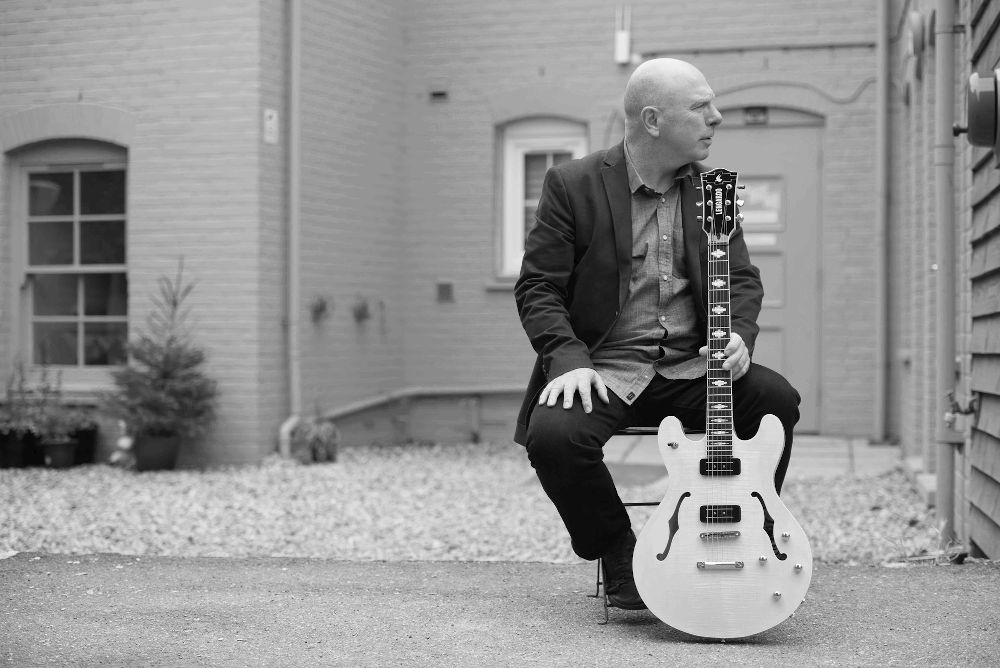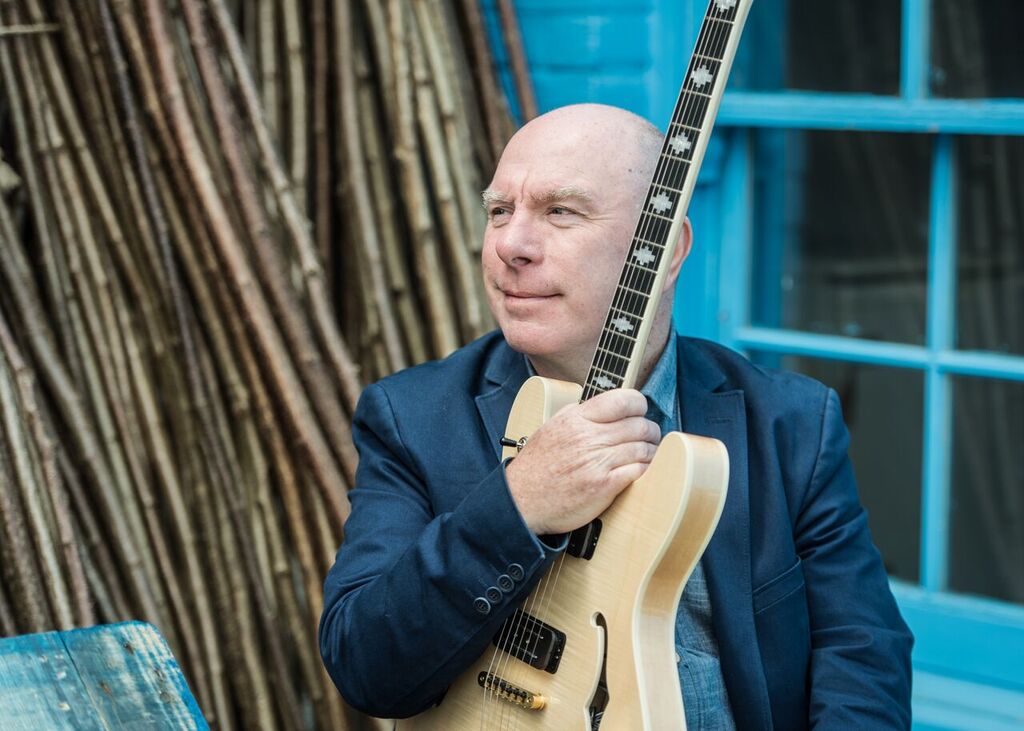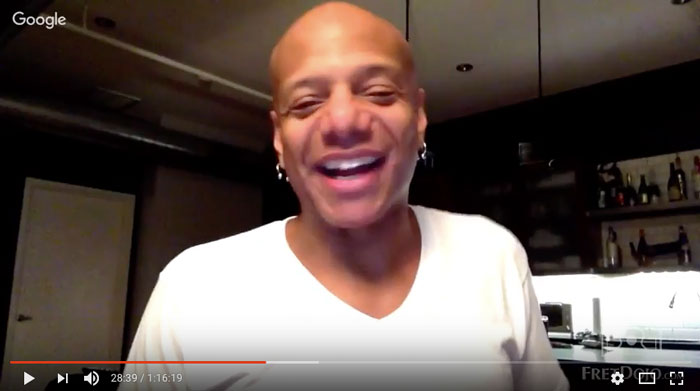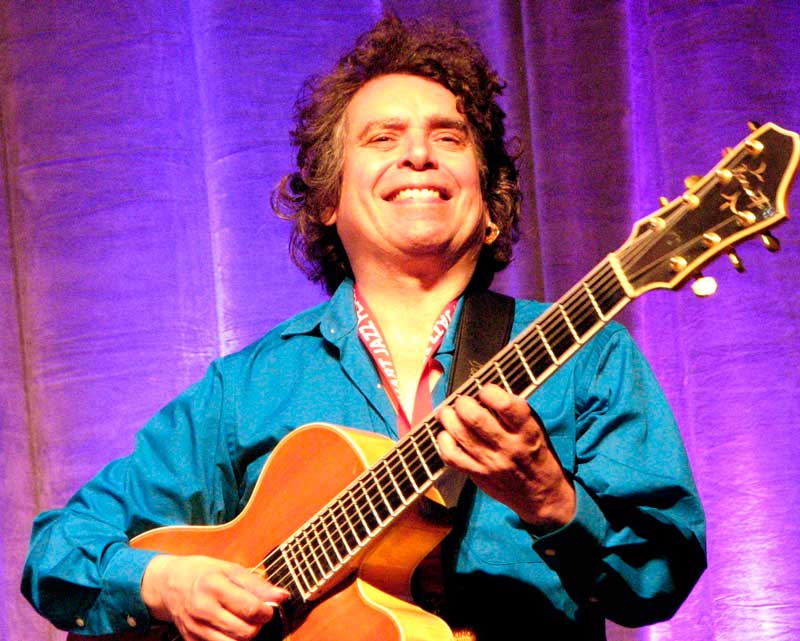
On today’s Podcast, Carl Orr, FretDojo’s current Artist In Residence, shares his insights into the magic of chord melody and the power that comes from tapping into the strength of guitar as a solo instrument.
Check out the podcast here and listen to Carl’s story, as well as some very moving chord melodies he plays throughout the show:
Podcast: Play in new window | Download (Duration: 22:43 — 15.8MB)
Get Notified Of Future Episodes Apple Podcasts | TuneIn | RSS | More
Join FretDojo’s online jazz guitar academy here

Carl Orr
Carl has performed and recorded with some of the finest musicians on the planet including Billy Cobham, George Duke, Ernie Watts, Randy Brecker, Gary Husband and Bennie Maupin.
He is a regular at London’s legendary Ronnie Scott’s Jazz Club in his own band and as a member of drummer Mark Fletcher’s supergroup “Fletch’s Brew”.
Carl has taught guitar at The Australian Institute of Music, Brunel University, Middlesex University, London Centre Of Contemporary Music and The Academy of Contemporary Music.
A prolific composer, Carl has recorded eight albums as a leader and is featured on albums by Billy Cobham, Fletch’s Brew, Geoff Eales and Nathan Haines.
His latest album, Forbearance is a dramatic departure from his jazz and fusion recordings of the past and with the aid of producer Tim van der Kuil and arranger Grant Windsor, Carl has crafted a truly unique acoustic guitar-based album exploring pop, rock, folk, Americana, and classical styles.
He regards his music as his public contribution to creating a peaceful, harmonious world.
“It is not enough for me for my music to merely be a manifestation of the chaos and disharmony of the world, but instead it must be a potent influence on creating peaceful relationships between people. My aim is to make the listener feel calm, optimistic and invigorated.” ~ Carl Orr


This is a wonderfully natural, inspiring and informative piece by Carl that has re-awoken my enthusiasm for holding and playing my guitar[s] everyday – thank you!
Thank you very much Carl. A captivating podcast, with simple but highly effective insights. And I’ve already spoken to my guitar !
Loved this! Thank you!